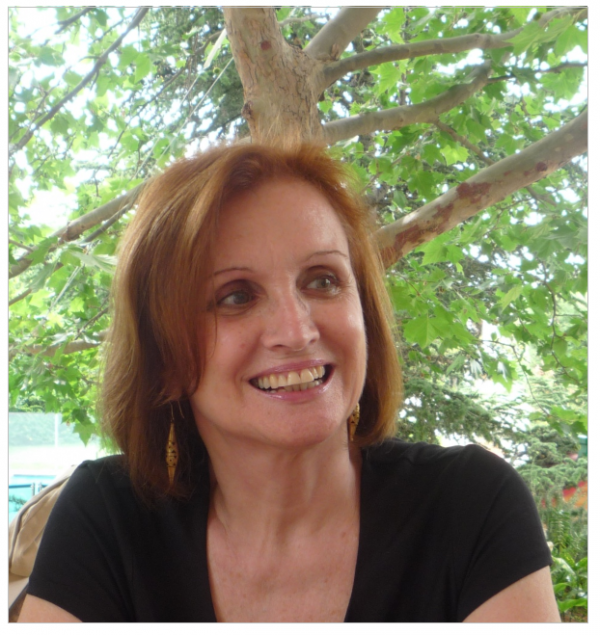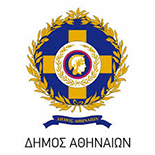«Saint Marina’s Tribute»
PRAISED BE the wave growing wild
rising five fathoms high
the hair spilled to the vulture turning
to strike the windowpanes in a storm
Marina as she was before she existed
with the wild dog’s skull and the demons
Marina, the moon’s crescent horn
Marina, the world’s doom and destruction
ODYSSEUS ELYTIS
The Axion Esti
In the morning Mother stood in front of the window that looked out to the sea. A threatening gloom shaded her wide and usually calm brow as she shook her head and said lost in her thoughts:
“Saint Marina’s today and it’s windy again.”
We were still living in the big three-story town house in Kioskia, outside Varna then. A long chestnut-lined alley connected the house with my father's nearby factory, which produced biscuits, Turkish delight, chocolate and halva. We had a generator, and when the town lights went off, ours stayed on all night; each time the Consul came to visit us, father would fly the Greek flag; the Bulgarians constantly had it in for us.
Erietta, the first born of my mother’s from her first marriage, was staying with us for a while with her husband and their two daughters, Moussa and a newborn baby. They were looking for a house in Varna. With them had come her in-laws from Constantinople for a short holiday. So each morning we all went down to the sea. We would cross the acacia-lined avenue that led to King Boris’ palace and, taking a downhill path, among vineyards we would arrive at the sea. It was a beach of golden sand, sparkling and clean because it was raked every day. Women and children at one end; the men, separate, at the other.
However, that morning my mother said during breakfast:
“My dear Savvas, don't go into the water today, there's a lot of wind. It's Saint Marina’s Day and there's always a heavy sea. We never swim on her day.”
The father-in-law, who loved the sea and would swim for hours on end, was a short, pot-bellied seventy-year-old with a thick neck, who knew it all. He didn't bow to popular superstition. Behind his back we would call him Mister “Bath and broth”. His business often brought him from Constantinople to Varna. He was rich and had a Turkish bath in his house; when the ship was nearing port he would wire home, “ARRIVING MARGARITA STOP PREPARE BATH AND BROTH STOP SAVVAS”. He was well read and kept introducing unintelligible words into his conversation. “Ancient”, my father would call them; he too was well read, spoke Latin with the Archbishop in Greece, and was a graduate of the Megali tou Genous Scholi of Istanbul.
Father would also go down to the sea every day, separately from us, but he wouldn't go into the water. He would just sunbathe, although I always remember him milky white, with blue-green eyes, immensely tall.
By the time all of us - mother, Nina and Moussa, Savvas' wife Cleoniki, Aunt Irene and the maid with the swimming things and the picnic basket - got going, father and “bath and broth” had already left.
When we arrived at the beach we younger ones changed behind a large towel held by Aunt Irene. Afterwards the ladies made themselves comfortable under their parasols in their usual spot, legs and arms bared to the sun, while we settled down to play in the sand. That day swimming was forbidden; there was a strong wind and a heavy sea was running.
I can still remember the waves crashing down on my legs, filling my knit swimsuit with sand. They came and went, came and went, and each time they would hollow out a bigger hole beneath me, each time they would pull me a little further in. As if from far away, I could hear Nina nannying Moussa; she was playing doctor, trying to lift her up and the little girl, who wasn’t enjoying this, was whining. I think I must have fallen asleep for a moment. What happened next was almost like a dream: I was in the water, in the waves, swimming like a mermaid, and I could see some seaweed like long dark blue ribbons beckoning to me, come, come; and from among the seaweed appeared the moon-like face of "bath and broth". His cheeks were puffed out and he was making bubbles like the goldfish in our garden’s pond; as he approached he said to me “Go back to your mother, she's looking for you”. Suddenly a sheet of green covered me, and I was sinking, sinking, until it touched my face and smothered me; I couldn't breathe, had nothing to hold on to pull myself out, to take some air.
Later, they told me that they had dragged me out just in time, fainting. Aunt Irene had dived in with her clothes on, together with a young girl, a neighbour, who was nearby. It seems that the sea had drawn me in, while I was half-asleep on the sand. They pressed on my stomach and all the water I had swallowed shot out. I opened my eyes, felt like throwing up; I breathed, I was saved.
When I stood up, everyone at the beach was on their feet, all eyes were on me. “Cleoniki, we'd better be going. Irene, let's gather everything up and head home”, my mother decided, and I was the first, still pale, with my eyes downcast from shame, to set off up the slope.
We hadn't got halfway home when woman wearing a scarf, who had paused on the slope, said to my mother,
“Dear me, Mrs Katsouli, Saint Marina's taken her tribute again.”
“Who is it, do you know?”
“I don't know, they said it was someone from the factory” replied the woman, and continued on her way, nodding her head up and down.
“What did she say, Vassiliki? What happened?” asked Cleoniki.
“Something happened down at the sea, some worker” muttered my mother.
We children looked at each other, because we hadn't understood either. And then suddenly we heard the sound of running footsteps. Alekos Siderakis, our cousin, together with the Mute, our servant, came down to us.
They were carrying folded blankets and were sweating and out of breath.
Alekos greeted everyone and bent down and whispered something to mother. Abruptly she became serious, straightened her back, turned to the women and said:
“Something's happened… I'll run ahead, you follow with the children", and she hurried off without waiting for a reply.
Cleoniki tried in vain to catch up with her to find out more; but mother had grown wings on her feet, and even we were running to keep up with her.
Later on they confined us children to the ground floor sitting room and if it hadn't been for my friends Svetsko, Andretsko and George Pappas, I would have never learnt exactly what had happened.
They told me the whole story, sparing no detail. It seems my father was lying on the sand as usual, with a face towel draped over his face, and “Bath and broth” had gone into the sea. It was really blowing very hard that day, and the boys were playing prudently in the shallows. After some time a sailor came up to my father, nudged him, and said:
“That fellow who's floating out there, didn't he come with you?” pointing to “Bath and broth”. Father jumped up and almost had a heart attack..
Two or three men dived in and pulled him out on to the sand, but it was too late. They sent off to the town for the police, and to the house for someone to bring blankets. The drowned man stayed there all day, under the burning sun, until the coroner arrived.
When they brought him home, they carried him up the outside white marble staircase to the reception rooms, for the wake. Aunt Irene took white sheets from the linen cupboards, and covered all the mirrors. We stayed downstairs by the kitchen; they wouldn't even let us go in for a moment. We just heard the servants coming and going with coffee and biscuits, and cognac for the men, telling each other everything. They rolled their eyes as they related how swollen and green the drowned man was.
The priest came early the next morning. The funeral was to be at midday. My mother, with the priest, hurriedly baptised her eldest daughter's baby in secret, behind the door, before the undertakers came for her grandfather. It was considered bad luck for a dead to leave a house where there was a baby not yet baptised. We ran to watch when the base chanting voice was heard: “In the name of the Father and the Son and the Holy Ghost…” and the priest lifted the baby three times in the air. My mother gave the child her own name, Vassiliki, but everyone called her Lilika. Years later I would hear our Lilika complaining how all her misfortunes started then, when they had baptised her behind the door.
When the time came for the funeral, we, the children, were all assembled in one part of the garden watching the goings on. I wanted to tell someone all that had happened to me, to tell about that dream, about the drowned man who had spoken to me, but everyone had forgotten my adventure. We were wearing our Sunday best, and it was hot. Four men brought “bath and broth” downstairs with difficulty, and as they tilted the coffin, water started to seep out, which stained the stairs, and the women covered their noses with their handkerchiefs.
Among the people gathered in the courtyard, waiting to follow the procession from the Greek Church of St. Nicholas to the Greek cemetery, there was only one subject of conversation:
"It's Saint Marina's tribute", they all said, and nodded their heads wisely.
That evening, when all the visitors had left and the grown-ups had retired weary to their rooms, my mother took my father by the arm and they went out into the garden for some fresh air. I managed to grab her hand and she didn't send me to bed as usual, but put her arm round my shoulders, and drew me outside with them.
“We might have been mourning someone else today”, she said quietly.
And, seeing the question in my father's look, continued:
"The waves first pulled the little one, Phaedra, from the shallows where she was sitting; I don't know what miracle, what saint, saved her. By the time we got her out she had swallowed a lot of water.”
My father remained silent for a while and then replied:
“It was Saint Marina, Vassiliki”, he said and I believed him. "Saint Marina took the old man and left us the child, Great is her Mercy!"
There is no seventeenth of July, like today, that I do not remember that Saint's day. I find myself in the attic with the hatboxes, the old clothes and the dolls and I see again my mother’s gloomy forehead in front of the window. That memory remains alive: my first encounter with the unknown, mysterious forces of life, those that demand a sacrifice, my first meeting with Death.
Translated by Julian Cassavetti
|







